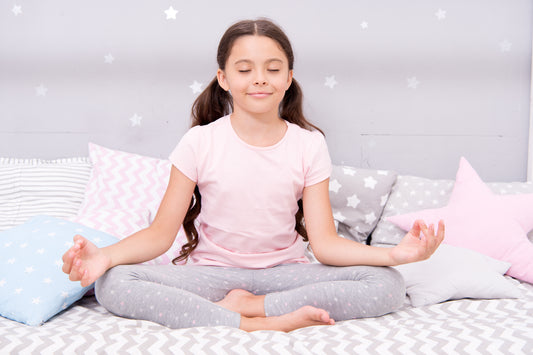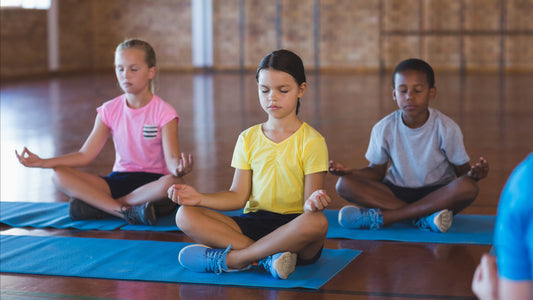Amidst the hustle and bustle of daily life, fostering inner peace and emotional well-being in our children remains crucial for their overall development and well-being. While meditation has long been considered a practice for adults, research and growing awareness suggest that it can offer a multitude of benefits for children as well.
Children can benefit greatly from meditation. Meditation can help children develop important life skills such as self-awareness, self-regulation, and emotional resilience. It can also help them reduce stress, anxiety, and improve their overall well-being.
Reaping the Benefits of Meditation for Children
1. Enhanced Emotional Regulation
Meditation can help children develop better self-regulation skills, enabling them to manage their emotions effectively. By cultivating a deeper understanding of their thoughts and feelings, children learn to respond rather than react to emotional triggers, leading to improved behavior and emotional stability.
2. Improved Focus and Attention
Meditation can help children improve their ability to focus and pay attention, which can benefit their academic and personal lives. By cultivating a sense of stillness and inner calmness, meditation allows children to concentrate more effectively, reduce distractions, and enhance their overall learning experience.
3. Reduced Stress and Anxiety
Meditation has been shown to effectively reduce stress and anxiety in children. The practice of focusing on the present moment and observing thoughts and emotions without judgment helps to calm the mind and body, alleviating stress-related symptoms and promoting relaxation.
4. Improved Sleep
Meditation can help children fall asleep more easily and improve the quality of their sleep. The practice of relaxation and stress reduction promotes a sense of calmness before bed, allowing children to transition into sleep more effortlessly and experience deeper, more restful sleep.
5. Enhanced Mindfulness
Meditation cultivates mindfulness in children, helping them appreciate the present moment and cultivate a sense of gratitude. By focusing on their breath and bodily sensations, children develop a deeper awareness of their internal state, fostering non-judgmental acceptance and appreciation for the present moment.
6. Improved Social Skills
Meditation can help children develop better social skills, including empathy, communication, and conflict resolution. The practice of mindfulness and self-awareness promotes understanding of others' perspectives, enhances communication skills, and fosters peaceful resolution of conflicts.
7. Increased Emotional Resilience
Meditation empowers children to develop emotional resilience, the ability to bounce back from challenges and setbacks. By cultivating self-compassion, mindfulness, and positive coping mechanisms, meditation helps children navigate difficulties with greater strength and perseverance.
Introducing Meditation to Children
While meditation offers a multitude of benefits for children, it's important to introduce the practice in an age-appropriate and engaging way. Here are some tips to make meditation enjoyable and effective for children:
-
Start with short sessions: Begin with 5-minute meditation sessions to allow your child to get comfortable with the practice and gradually increase the duration as they become more familiar with it.
-
Incorporate playful elements: Make meditation fun and engaging by incorporating playful techniques, such as guided visualizations, interactive games, and mindful coloring activities.
-
Choose a calming environment: Create a serene and distraction-free space for meditation, with soothing music, soft lighting, and comfortable seating.
-
Be patient and supportive: Children learn at their own pace, so be patient and understanding as they explore meditation. Avoid imposing expectations or creating pressure.
-
Celebrate progress: Acknowledge and celebrate your child's progress, no matter how small, to reinforce their efforts and foster a sense of accomplishment.
Meditation offers a safe, effective, and non-pharmacological approach to promoting emotional well-being, focus, and resilience in children. By cultivating mindfulness, enhancing self-awareness, and promoting emotional regulation, meditation can help children thrive in various aspects of their lives, from academic performance to social interactions and overall well-being. Encourage your child to embark on a journey of self-discovery through meditation and witness the transformative power it can bring to their young lives.
To learn more, visit our BLOG




